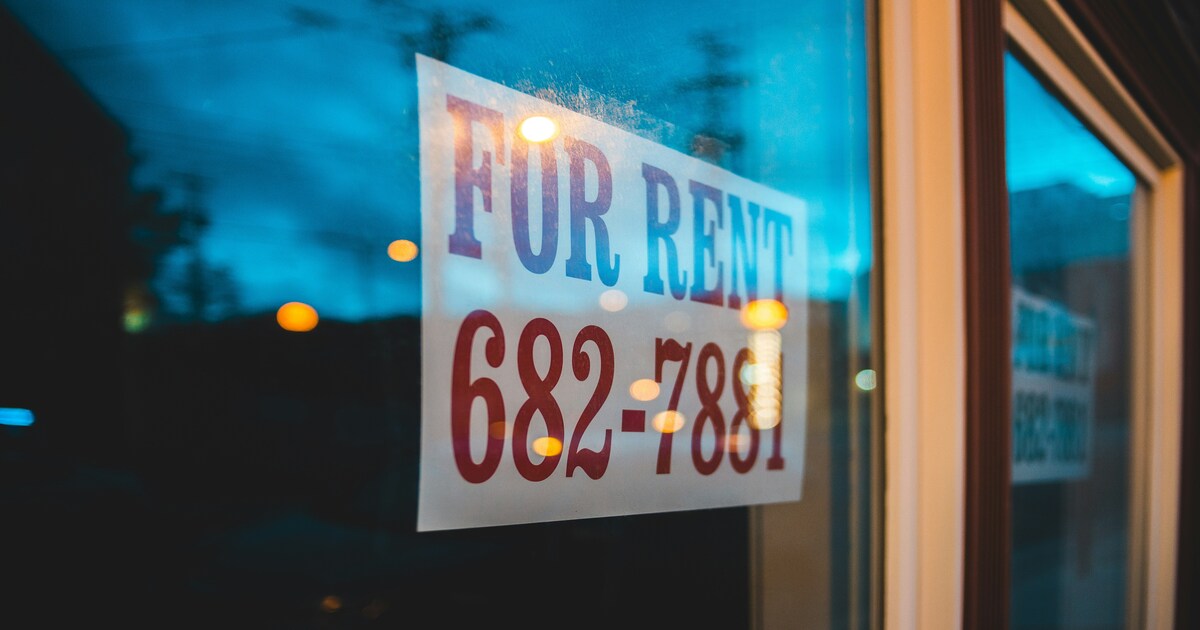It’s one of the most common questions among soon-to-be US expats: If I’m moving abroad, should I sell or rent my house? Selling your house outright can take a load off your mind, but renting it out allows for a stream of steady rental income.
Ultimately, the best option for you depends on your situation: How long you plan to stay abroad, whether you plan on returning, and critically, how each option affects your taxes.
Read on for an in-depth (but digestible!) explainer of the tax implications of selling your house vs. renting it out while abroad, the pros and cons of each option, and more.
General tax obligations for US expats
Before we dive into the specifics, let’s clarify one thing: moving abroad does not mean that you’re free from your US tax and reporting obligations. That’s because the US is one of the only countries in the world that employs citizenship-based taxation.
Under this system, all American citizens and permanent residents who meet a minimum income reporting threshold a) must file a federal tax return and b) may be subject to US income taxes. This is true even for Americans who have moved to other countries.
If you’re a tax resident in another country as well, you may face double taxation, but there are ways to avoid it.
Two of the most commonly leveraged tax breaks for expats are the Foreign Tax Credit (FTC), a provision that gives you dollar-for-dollar US tax credits for any foreign income taxes you pay, and Foreign Earned Income Exclusion (FEIE), a provision that allows you to exclude a certain amount of foreign-earned income from taxation (provided that you pass either the Physical Presence Test or Bona Fide Residence Test).
Note:
Depending on the value, owning foreign financial assets or holding money in foreign financial accounts may require you to file additional reports like the FBAR or Form 8938.

Tax implications of renting out property as a US expat abroad
So, how does renting out your property while living abroad impact your US tax liability? First, let’s talk about how the US taxes this type of income.
Taxes on earned vs. unearned/passive income
Rental income falls into the category of passive (or unearned) income, as opposed to earned income.
Earned income encompasses all types of income that you bring in from actively working as an employee, business owner, or independent contractor. This includes:
- Wages
- Salaries
- Tips
- Bonuses
- Commissions
- Self-employment income
Passive/unearned income encompasses all types of income that you don’t actively work for, such as:
- Dividends
- Interest
- Capital gains
- Royalties
- Alimony
- Rental income
By default, the government taxes unearned income the same way as they do earned income in most cases. In other words, it’s also subject to ordinary income tax rates from 10% to 37%, depending on which tax bracket you fall into.
There are exceptions for unearned income derived from a) capital gains or b) dividends. Rental income falls into neither of these categories, so the government taxes it at the ordinary rates mentioned above.
Tax deductions for rental income
Fortunately, there are certain tax breaks that you can claim for rental income. Every year that you rent out your property for over 15 days, you can deduct the following expenses:
- Property management fees
- Cleaning/maintenance expenses
- HOA fees
- Property insurance premiums
- Utilities
- Advertising
- Legal/professional fees
- Property taxes
- Depreciation
Note:
You can only deduct expenses for days when there were tenants in the property.
By allowing rental property owners to claim depreciation against their rental income, the IRS helps offset the costs associated with potential decreases in value over a certain period of time. For residential rental property owners, that period lasts for 27.5 years.
Within those 27.5 years, owners of residential rental property located in the US may deduct the initial cost of the property (plus capital expenditures) divided by 27.5 each year.
Keep in mind that you may be subject to depreciation recapture if you decide to sell a property you’ve rented out down the line.
Depreciation recapture happens when the profits gained from selling a rental property you previously claimed depreciation for exceed the adjusted cost basis (i.e. the value of the home when you purchased it plus the costs associated with maintaining or improving it).
The IRS then taxes that excess income at ordinary income tax rates. In other words, the depreciation that was claimed or claimable (even if not actually calculated on your tax return), is subtracted from your basis when calculating the net gain on the sale.
Tax & reporting obligations related to rental income
You will report your rental income on Schedule 1 (Form 1040) and claim deductions on Schedule E (Form 1040). In the first year of renting or in years with new capital expenditures, Form 4562 would also be required.
Other forms you may receive include:
- Form 1099-K: Required for those who collect more than $600 in rental income through a payment processing platform like Stripe or DoorLoop (from tax year 2024 onward)
- Form 1098: Required for those who are paying off mortgages
Pro tip:
Renting property out through a business (such as a partnership or S-corp) requires different tax forms than the ones mentioned above. You may also need to send tax documents to those you’ve hired to help with the property. Employees will need W-2s, while independent contractors to whom you’ve paid more than $600 will need 1099s for their own records.
Tax implications of selling property as a US expat abroad
Any income you gain from selling property falls under the capital gains category. As we mentioned earlier, capital gains taxes work differently than other forms of income taxes.
There are two forms of capital gains taxes:
- Short-term capital gains: Applies to assets sold within a year or less of acquisition. Incurs taxes at ordinary income tax rates from 10% to 37%, depending on your tax bracket.
- Long-term capital gains: Applies to assets sold more than a year after acquisition. Incurs taxes of either 0%, 15%, or 20%, depending on income tax bracket.
If the property you’re selling is your primary residence, however, you may be able to exclude a significant amount of those gains from taxation through a Section 121 exclusion:
- $250,000 for single filers
- $500,000 for married joint filers
That said, you may be unable to claim this exclusion if you:
- Didn’t own & live in the property for two of the last five years
- Note: Certain individuals — such as those with disabilities or those who have to move for work — may be exempt from this requirement
- Already claimed this exclusion within the last two years
- Acquired the property through a 1031 exchange
- Are subject to the exit tax
You may qualify for a partial Section 121 exclusion if you lived in the house as a primary residence and rented it for part of the time. We recommend consulting an accountant to take advantage of this more complication calculation with your tax return.
Tax & reporting obligations related to home sales
Generally, you will receive a report of income earned from selling your house on Form 1099-S. If you didn’t qualify for the Section 121 exclusion, or sold the house for more than the exclusion threshold, you will also have to report that income on Schedule D (Form 1040) and Form 8949, Sales and Other Dispositions of Capital Assets.
You may also receive Form 1098 if you paid mortgage interest within the last year. This is often where you can find real estate taxes paid too, but if not, be sure to look those up and include as an expense.
Practical considerations: Pros & cons of renting vs. selling property when moving abroad
There are pros and cons to any decision, so let’s go over some of the benefits and drawbacks of deciding to rent out vs. sell your home while living abroad.
Pros & cons of renting out property while abroad
Pros
- Receive a steady stream of income
- Able to deduct many fees and expenses related to owning the property
- Able to claim depreciation
- Able to move back in if you choose to return to the US
- May be able to stay there temporarily when visiting the US, depending on housing type and leasing arrangement
- Property may continue to accrue value for a later sale
Cons
- Can be difficult & stressful to manage a property from another country
- Maintenance & management can be time-consuming & expensive
- May run into issues with tenants
- May be subject to depreciation recapture if you later sell the property
Pros of selling property while living abroad
Pros
- Receive a lump sum payment to help you start your new life abroad
- Save time, money, & mental energy by not having to manage or maintain a rental property from abroad
- Pay taxes at the beneficial long-term capital gains rate if you’ve held the property for more than a year
- May be able to exclude a significant amount (or even all) of those gains from taxation if you qualify for the Section 121 exclusion
- No property taxes to pay
Cons
- Pay taxes at ordinary income tax rates if you’ve held the property for less than a year
- May not qualify for Section 121 exclusion
- No steady stream of rental income
- May have to purchase new home if you decide to return to the US
- Not able to stay in home when visiting the US
- Property value may increase over time so you miss out on that accrued value
Other factors to consider
A few other questions to ask yourself when considering whether to rent or sell your house upon moving abroad include:
- Do I have other sources of income to support me while living abroad?
- Do I have the time and energy to rent out a property from abroad?
- Am I willing to pay for upkeep services?
- Do I want to return to the US one day? If so, would I want to live in the same house or a different one?
- What’s the real estate market like? Is now the best time to sell?
- Is there someone I want to gift the property to, now or in the future?
- If I do decide to sell, would I want to hire a real estate agent or sell it on my own?
Make an informed decision about your US property
When deciding whether you should sell vs. rent out your house when moving abroad, there’s no one right answer.
For those who want a steady source of income, are willing to put in some time and effort, and may return to the US at some point, renting out their property may be the right decision. But if you don’t want to deal with the hassle of renting out a property while abroad, already have other sources of income, and don’t plan on coming back to the US, it may make more sense to sell.
And from a tax perspective, renting may make more sense if you have owned the property for less than a year and/or don’t qualify for a Section 121 exclusion. Those who qualify for the long-term capital gains rate and/or Section 121 exclusion may be more motivated to sell.
Rent or sell your US home when moving abroad: FAQ
-
Can you avoid capital gains taxes when selling your house before moving abroad?
You may be able to exclude some (or all) of your capital gains from taxation when selling your primary home. The Section 121 exclusion allows eligible single filers to shield up to $250,000 (or $500,000 for married couples filing jointly) from taxation. To qualify, you must:
-
- Have owned & lived in the property for two of the last five years (with some exceptions)
-
- Not have already claimed this exclusion within the last two years
-
- Not have acquired the property through a 1031 exchange
-
- Not be subject to the exit tax
-
-
Is it better to rent or buy a house when living abroad?
Whether it’s better to rent or buy a house while living abroad depends on your individual circumstances. You may want to rent your home if you:
-
- Don’t have enough capital for a down payment on a house
-
- Only plan on living there temporarily and/or don’t want to go through the trouble of renting that property out
-
- Won’t qualify for a mortgage in your new country
On the other hand, you may want to buy a house if you:
-
- Have the capital necessary
-
- Plan on staying there for the long haul or want to rent the property out
-
- Want to diversify your investment portfolio with real estate
Keep in mind that you would still owe US taxes on any income you earn from renting out foreign property.
-
-
Should I hire a property management company when renting out my house from abroad?
It’s a matter of preference, but most people find it easier to hire a property management company (or property manager) when renting out their house from abroad. Otherwise, you may need to return to the US more often or extensively coordinate to have on-site necessities taken care of.

 Connect on LinkedIn
Connect on LinkedIn







